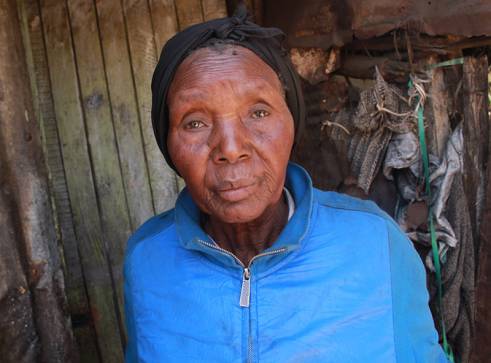“Social assistance has meant so much to me.” Elisabeth Marwa, 73 years old, Kenya.
Elisabeth Marwa’s life became unbearable when her husband of 50 years turned violent and forced her out of their home. He had wanted to sell their property so he could use the proceeds to marry a younger woman.
Homeless and with no one to take her in, Elisabeth used all her money to move to Nairobi to start a new life. However, when she arrived in the city she struggled to find employment. Every employer turned her away as they considered her too old to work. She was only offered a few low paid jobs as a domestic worker, but over time her employers reduced her hours, deciding a younger person would work harder. Soon she could no longer afford her rent and was left homeless once again.
Her circumstance only changed when she began to receive social assistance from the Older Persons Cash Transfer Programme. Launched by the government of Kenya, this programme provided Elizabeth with 1,065 Ksh a month, the equivalent of 10.65 USD.
“The social assistance has meant so much to me,” said Elisabeth. Initially, she used the money to pay her rent, but later she got the idea of starting her own business by turning charcoal dust into briquettes (block of compressed combustible material used as fuel).
However, Elisabeth needs more support to have a good quality of life. Her business is not doing well. Many men and women disapprove of her occupation, believing her to be too old to successfully run her own business. This has substantially reduced her profits, as people refuse to buy briquette from her. The financial assistance she receives is also not adequate for her needs and over time has become inconsistent, leaving her worried about her future.
“The last time I got paid was in December and I’m still waiting. The delay has affected my business. Today, I can no longer afford to buy a sack of dust. I only buy a quarter of a sack or less to keep moving. Buying food and transport to move about has become an issue,” she said.

